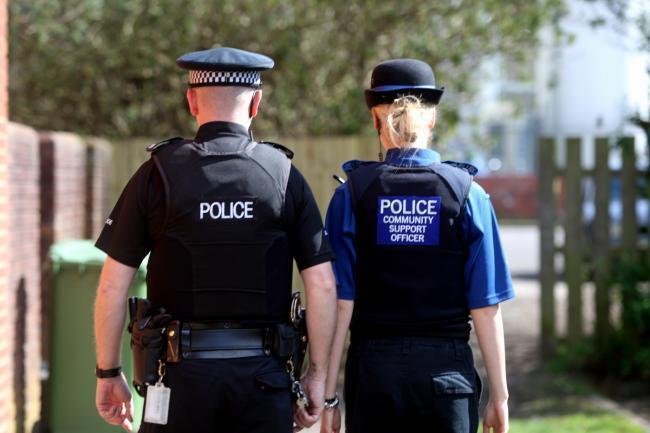By Ashley Young And Lucy Caulkett-
A report by the centre for Women’s Justice and the Bureau of Investigative Journalism has detailed the uprofessionalism, lack of integrity, and abuse conducted by 15 police forces in the Uk .
The Centre For Women’s Justice received numerous reports from women about police officers accused of domestic abuse.
It reveals manipulation by police officers when it comes to properly investigating complaints, made against their colleagues, and a culture of protectionism, in which officers complained about often have intimate connection with those who are meant to be protecting the victim.
In some cases, the alleged abuser has been part of the team meant to be protecting the victim. The report also reveals that some police officers have abused their position for sexual gain.
The complaint raises serious concerns about the way various policing systems operate where police officers are accused of domestic abuse. It proposes recommendations to address the bad practise
Central to the disturbing concerns from the report,is a lack of integrity, the report states. Police officers were accused of manipulating the system and acting in bad faith in a variety of ways. Police abuse with respect to victims of domestic violence, and the handling of reported cases, has called for special arrangements for such cases.
Powerless Victims
The report highlights the powerless feeling of female victims in such cases. The report also states that in many cases, their abuser is part of the system intended to protect them.
It concludes that female victims of domestic violence perpetrated by their partners, who are police officers, feel a deep lack of confidence in the criminal justice system. In most cases, the victims of domestic violence also work in the police force with their abusers.
The report states that the ”unique position” of these female victims of domestic violence perpetrated by the police, justifies new procedures to ensure that women in this position have greater protections, better outcomes, and that justice is seen to be done.
Alarming
A shocking aspect of the report is the finding by domestic abuse professionals is that a number of officers believed to be perpetrators of abuse have continued to work in public protection roles which
involve dealing with vulnerable victims of domestic and sexual abuse. The researchers who conducted the reports highlighted common themes in the women’s accounts.
Common patterns observed from the complaints and their overall outcomes, include difficulties in initial reporting, failures in investigation, and improper manipulation of police processes.
Improper Responses To Complaints/Concerns
Improper responses to complaints have also been made, and accused officers have been found to have personal links with others in the force.
Accused officers are also said to have used their police knowledge, status and powers to bring about Improper decisions in relation to criminal charges. In some cases, abused women have been arrested, the report says.
Freedom Of Information
The Data was obtained through the Freedom of Information made by the Bureau of Investigative Journalism to all police forces in England and Wales on numbers of reports of police perpetrated domestic abuse and their outcomes.
Criminal Outcomes
Criminal outcomes arising from the reports show a conviction rate of 3.9%- two-thirds of that for the general population. Responses where misconduct outcomes were given, revealed only 7.5% of cases were referred to the Independent Office of Police Conduct (IOPC). Of the total concluded cases, in 76.3% there was a finding of no case to answer or no sanction, and some sanction was applied in 16.8% of cases.
Human Right Abuses
Researchers also concluded that issues of Human Rights Abuses arise from an assessment of the failings revealed in the report. It states that police perpetrated domestic abuse raises a range of duties under the
Human Rights Act, engaging Article 3 (inhuman and degrading treatment) and/or Article 8 (respect for private and family life) of the European Convention on Human Rights (ECHR).
They include a duty to carry out an adequate and effective investigation, a duty to protect a person known to be at risk and a duty on the state to carry out an independent investigation into state failings.
Where direct or indirect discrimination on the grounds of sex is established, there may also be a breach of Article 14 ECHR and/or of the Equality Act.
The report also suggests a breach of the Istanbul Convention, the Council of Europe Convention on preventing and combating violence against women and domestic violence, which requires effective action in response to domestic abuse.
Institutionalised Sexism
It puts the complaints in the context of a broader culture of ‘institutionalised sexism’ within the police service that condones and trivialises violence against women. It highlights catalogue of failings by the police force in response to complaints initially made to them.
It includes sexual harassment reported by police employees, concerning levels of abuse of power by police officers for sexual gain, high numbers of reports of sexual assault by police officers where officers have faced no sanction, and the scandal of undercover police officers having deceitful sexual relationships.
The report proposals changes, including bespoke reporting which allows victims to make complaints to a police authority independent of the one they are complaining about.
The proposals requires a system that secures the confidence of victims at the earliest stage, engage them positively in the process, and enable them to raise concerns or queries to someone independent of the force concerned. It proposes external disciplinary procedures, and IOPC oversight.




